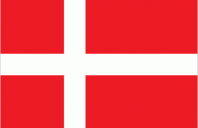Denmark Sets Lofty Energy Goals
Denmark is leading Europe’s push toward renewable energy with its ambitious new energy goals, reported German broadcaster Deutsche Welles earlier this month. By 2020, Denmark plans to get 70 percent of its energy from renewable sources and to eliminate coal, oil, and gas entirely by 2050. The country currently uses renewable energy sources for about 25 percent of its total energy consumption.
Although Denmark has historically encountered local resistance to wind power plants, the government has implemented several measures to increase their desirability within a community. Homeowners are now directly compensated for any loss due to the project; if a house loses value because of its proximity to a wind turbine, the homeowner must be compensated for the depreciation. At least 20 percent of the shares in the renewable energy project must be offered to local residents, giving the community a direct stake in the investment. Additionally, new power lines are installed underground, reducing aesthetic concerns.
To reach its energy goal, Denmark must capitalize on its geographic advantages. The country has 4,500 miles of coastline, which makes it ideally suited to wind power. In 2013, a 400-megawatt offshore wind farm began producing energy off the Danish island of Anholt. More projects are in the works: a Swedish-German-Danish partnership is developing a 600-megawatt wind farm in the waters between the three countries, which is set to produce energy by 2020 at the latest.
The Chanler Group is actively engaged in the review and analysis of incentive-based renewable energy programs to determine potential benefits to our clients. Global energy consumption continues to increase each year and, with this increase, the demand for safe, clean, and unlimited energy is on the rise. The Federal and State governments promote this interest through a variety of financially-beneficial incentives. Our understanding of these laws allows us to guide homeowners, businesses, and/or developers through the various ways to take advantage of these incentive-based benefits. With the appreciation that renewable energy laws and regulations are constantly changing, The Chanler Group is committed to investing in its understanding and practice of this area of law.

